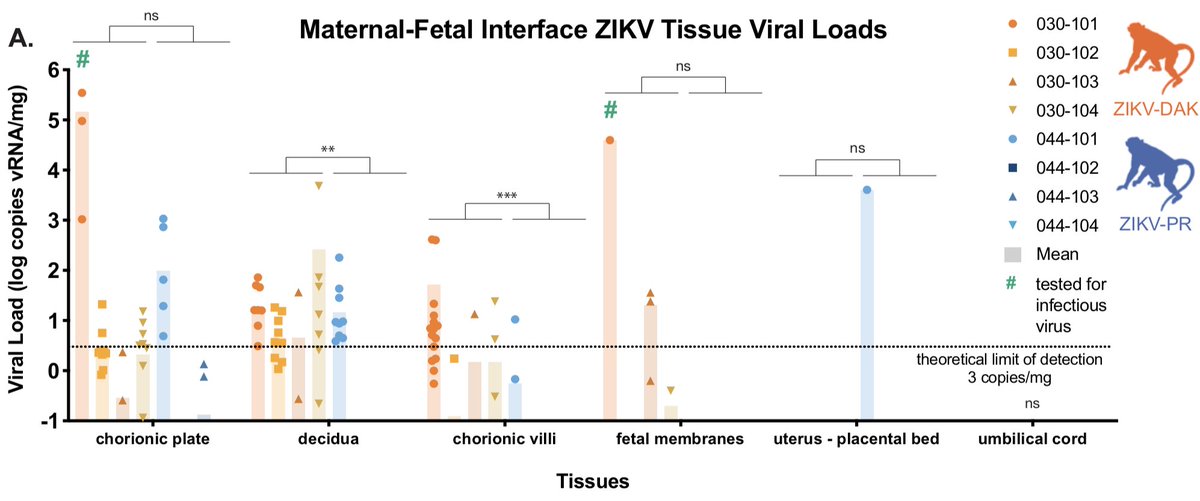Excited to share my work to characterize African-lineage #Zika during pregnancy in NHP! Thread  below with our primary findings: https://www.biorxiv.org/content/10.1101/2020.11.30.405670v1.full.pdf+html
below with our primary findings: https://www.biorxiv.org/content/10.1101/2020.11.30.405670v1.full.pdf+html
 below with our primary findings: https://www.biorxiv.org/content/10.1101/2020.11.30.405670v1.full.pdf+html
below with our primary findings: https://www.biorxiv.org/content/10.1101/2020.11.30.405670v1.full.pdf+html
First of all, these studies take a village and I'm grateful to @KATarinambraun @PhoenixCMP @dho @Mohr_Lab @AliotaLab @tcfriedrich and many others not on twitter for making this possible.
We assessed pathogenesis of a low-passage African-lineage isolate that had shown significant pathology in a vertical transmission model in mice: https://journals.plos.org/plosntds/article/comments?id=10.1371/journal.pntd.0007343
We compared a cohort of macaques infected with our African-lineage isolate to an Asian-lineage infected cohort.
We compared a cohort of macaques infected with our African-lineage isolate to an Asian-lineage infected cohort.
Our African-lineage cohort developed a more robust neutralizing antibody response than our Asian-lineage cohort.
We did not see any evidence of significant intrauterine growth restriction in either of our ZIKV-exposed cohort when compared to both a mock cohort and to normative data.
We did see a significantly higher burden of ZIKV vRNA in the maternal-fetal interface, specifically in placental tissues, in macaques infected with our Asian-lineage isolate. We were able to detect infectious virus via plaque assay in 3 of 4 high viral load samples.
However, the implications of this are unclear. We did not detect any vRNA in fetal tissues nor did we observe any evidence of fetal harm in either cohort, suggesting that maternal-fetal interface viral loads may not be a robust predictor of clinical outcome for the fetus at birth
Regardless, our African-lineage isolate replicated with similar kinetics and infected the maternal-fetal interface with similar or greater capacity as Asian-lineage isolates. #Zika of all lineages should be considered a threat to women and their infants.
Understanding the risk associated with African-linage isolates is important as these isolates expand their geographical range into South America.
https://pubmed.ncbi.nlm.nih.gov/32497802/ https://www.biorxiv.org/content/10.1101/828871v1
https://pubmed.ncbi.nlm.nih.gov/32497802/ https://www.biorxiv.org/content/10.1101/828871v1
Important to note that we tested a single isolate, dose, route, and inoculation timepoint in gestation. Stay tuned for additional work from the Zika Experimental Science Team assessing pathogenesis earlier in gestation.

 Read on Twitter
Read on Twitter





